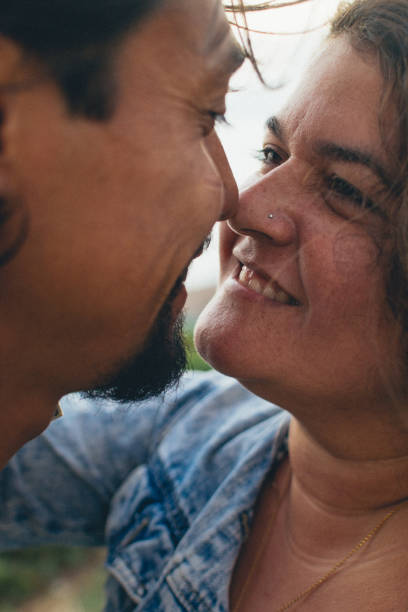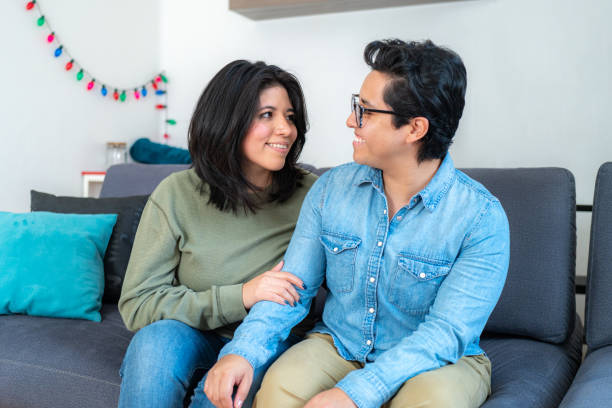In many Latine/x families, sexuality is a topic often shrouded in silence and shame. The cultural values of respect, modesty, and family reputation can make it difficult for individuals to explore their sexual health openly. As a sex therapist, I’ve had the privilege of working with many individuals and couples in the Latine/x community who have faced challenges navigating sexual health while balancing cultural expectations. I’ve witnessed the healing that occurs when we begin to unpack and address these taboos in a way that honors our heritage and personal well-being.
The Weight of Cultural Taboos
Religious beliefs, family traditions, and generational values can heavily influence sexuality in Latine/x culture. For many, topics like sex, pleasure, and intimacy are considered private, even “shameful,” and they’re rarely discussed openly. This silence can lead to confusion, guilt, or even fear when it comes to understanding one’s own sexual health.
Take Maria*. She came to therapy struggling with guilt around her sexual desires. Raised in a deeply religious household, she was taught that sex outside of marriage was sinful and discussions about sex were simply off-limits. As an adult, Maria found herself torn between her desires and the deeply ingrained beliefs that made her feel ashamed of her sexuality. She wanted to embrace her sexual health but didn’t know how to reconcile it with her upbringing.
Maria’s story is not unique. Many individuals in the Latine/x community find themselves at the intersection of cultural values and modern understandings of sexual health, making it difficult to navigate relationships, intimacy, and self-acceptance.
The Role of Family and Religion
In Latine/x culture, family is central. There is often a deep respect for elders and traditions, which can make challenging cultural norms feel daunting. Many families hold conservative views about sexuality, with strong religious influences shaping these beliefs. For some, the concept of marianismo—the idea that women should be pure, modest, and self-sacrificing, like the Virgencita—can impact how women view their own sexual expression. Similarly, men may experience the pressure of machismo, where masculinity is tied to sexual prowess and dominance, often leaving little room for vulnerability or emotional connection.
For Jorge*, this pressure was palpable. He struggled with erectile dysfunction but refused to talk to his wife or seek help because he believed it would make him seem “less of a man.” Jorge was raised in a household where male vulnerability was seen as weakness. In therapy, we unpacked these cultural expectations, and Jorge realized that his silence around his struggles was hurting his relationship. He eventually learned that true intimacy comes from emotional openness, not just physical performance.

Both Maria’s and Jorge’s experiences highlight how deeply these cultural narratives can shape our views on sexuality and how healing requires us to challenge them.
The Impact of Silence on Sexual Health
One of the biggest challenges with sexual health in the Latine/x community is the culture of silence. When sex is a forbidden topic, individuals often miss out on crucial sexual education, leading to misinformation, unhealthy behaviors, and shame around natural sexual desires. This silence can be harmful, especially when it comes to topics like consent, sexual safety, and pleasure.
In bicultural families, where parents may have grown up with traditional views but children are exposed to more liberal ideas about sexuality, the gap in understanding can be significant. Young people may feel lost between the two worlds, unsure of how to navigate their own sexual identities.
For Isabella*, a 20-year-old client, this disconnect was clear. She felt caught between her family’s strict views on sex and the more open attitudes she encountered at school and among her friends. Isabella struggled with guilt, feeling as though she was betraying her culture by exploring her own sexuality. Her parents had never talked to her about sex, and she had no idea how to start the conversation.

Strategies for Healing and Opening Conversations
While cultural taboos around sexual health can feel overwhelming, healing is possible. It begins with acknowledging the influence of these cultural narratives and creating a safe space to discuss them. Here are a few strategies that can help individuals and families start these critical conversations:
Acknowledge Cultural Values Without Shame. Healing doesn’t mean rejecting your culture or family values. It’s about finding a way to honor your heritage while also embracing a healthy relationship with your sexual self. Reflect on how cultural messages around sexuality have shaped your views, and approach them with curiosity instead of judgment. For Maria, this meant understanding where her shame came from and recognizing that her desires were natural, even if they didn’t align with the values she was raised with.
Start Small and Speak With Compassion. If you’re part of a bicultural family, introducing the topic of sex can feel intimidating. Start with small conversations that focus on education rather than personal experiences. This might mean discussing sexual health in general terms before diving into more intimate topics. Compassion is key—approaching these conversations with empathy and understanding the discomfort they may bring.
When Isabella and her mother finally started talking, we began by discussing general topics like reproductive health and consent. These small steps helped build trust and opened the door for deeper conversations later.
Seek Support From Trusted Professionals. For many individuals, therapy, coaching, and even support groups can be a safe place to explore these issues. Working with someone who understands both the cultural context and the intricacies of sexual health can provide guidance and support as you navigate these conversations. Jorge found that having a therapist who understood his cultural background allowed him to unpack his feelings in a safe, non-judgmental environment.
Empower Yourself Through Education. Knowledge is power, especially when it comes to sexual health. Seek out accurate, culturally sensitive information about sexual wellness. Understanding your body, your desires, and the science of sexual health can help dismantle any myths or misconceptions you may have internalized. Our support group, Passion + Amor: Bicultural Love & Sexual Health, is designed for anyone who identifies as Latine, Latinx, Latina, or Latino and needs support in navigating the complexities of sexual health, relationship dynamics, and intimacy.
For Maria, educating herself about sexual pleasure and reproductive health was a key step in reclaiming her sexual confidence. She learned that her desires were valid and that sexual health was an essential part of her overall well-being.
Embracing Open Conversations for a Healthier Future
Breaking the silence around sexual health in the Latine/x community is an act of healing. It allows individuals and families to shed the weight of cultural taboos and step into a more empowered relationship with their bodies, desires, and partners.
For those of us in bicultural families, it can feel like we are walking a fine line between honoring our traditions and embracing a more modern, open understanding of sexuality. But it’s possible to do both. By creating spaces for honest conversations, seeking support, and educating ourselves, we can begin to break down the barriers that keep us from fully experiencing sexual health and well-being.

As a sex therapist at the Center for Relationship & Intimacy Well-Being, our goal is to support this process, offering guidance, compassion, and a safe space to explore these sensitive topics. Together, we can begin to dismantle the taboos and create a culture where sexual health is celebrated, not silenced.
¡Únete a nuestra comunidad!
¿Ready para explorar el amor y la salud sexual desde una perspectiva bicultural? Passion + Amor: Bicultural Love & Sexual Health es un espacio safe, sex-positive y acogedor donde desmitificamos los tabúes, hablamos sobre relationships, intimacy y la sexualidad, ¡todo en Spanglish! Si eres parte de la comunidad Latine/x y quieres aprender más sobre sexual health, las dinámicas de pareja, y cómo crear deeper connections, este grupo es para ti.
Ven a ser parte de real conversations, backed by ciencia actual y una visión decolonial, mientras exploramos temas que impactan nuestra comunidad bicultural de primera y segunda generación.
¿Interesado/a/x? ¡Te invitamos a que te unas a este journey de amor, conexión, y sexual wellness!
Para inscribirte o pedir más info, ¡reach out today!
Un fuerte abrazo,
Jacqueline Mendez
—
